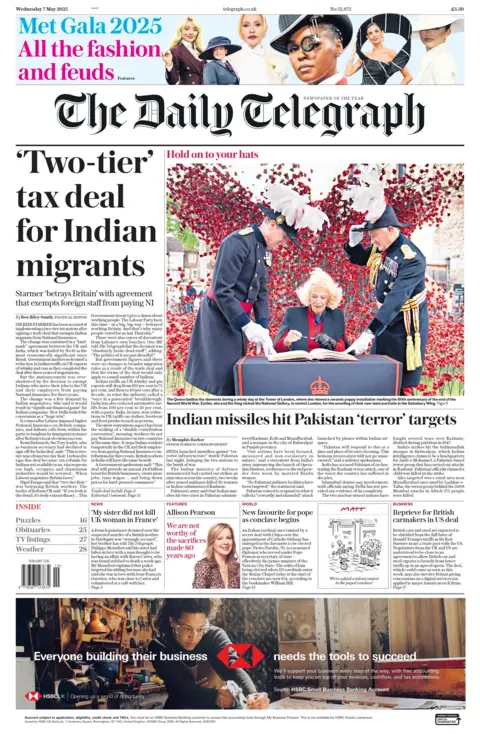The recent announcement of a groundbreaking “two-tier” trade deal between India and the UK has stirred significant political and public dialogue. The agreement, which is estimated to be worth £5 billion, has been described by various news outlets as a pivotal moment, marking one of the largest trade agreements since Brexit. However, it has also been met with considerable controversy and criticism, especially from opposition parties and sections of the media.
Prominent figures like Kemi Badenoch, the former business secretary, expressed strong reservations about the deal’s implications. In her remarks, she underscored her refusal to support the deal when in office, suggesting that “when Labour negotiates, Britain loses.” The government’s defense of the agreement rests on claims that it will reduce tariffs on UK exports, potentially offering a £4.8 billion boost to British businesses. This optimistic view, however, is shadowed by concerns that the deal creates an uneven playing field for British workers, especially in sectors likely to hire migrant workers from India.
The Daily Telegraph highlighted how the deal includes a significant tax exemption for Indian migrants who will be excluded from National Insurance contributions, raising questions about fairness toward UK workers. This sentiment was echoed by political adversaries including members of the Conservative Party, who accused Prime Minister Rishi Sunak of “undercutting British workers” through the agreement. Similarly, the Times reported widespread frustration from Tory and Reform factions regarding the ramifications of this trade agreement, indicating that 90% of taxes on UK exports like whiskey and cars would drop as a result.
The Daily Mail’s coverage also aligned with this critical perspective, framing it as a direct threat to local jobs by making the hiring of Indian workers more economically appealing. The report noted that the tax strategies outlined in the deal could further inflame tensions surrounding job security for British citizens. Critics argue that the agreement exemplifies a broader pattern of prioritizing relations with foreign partners at the expense of domestic workers.
Amid the uproar surrounding the trade deal, the opposition Labour Party is grappling with its own internal conflicts. The Daily Express reported on “Labour turmoil” after Keir Starmer made it clear that there would be no reversal of plans to cut winter fuel payments for senior citizens. This decision has faced backlash, particularly given recent local elections where the cuts were a focal point of contention.
Starmer’s stance has drawn sharp criticism from within his party, with some Labour MPs suggesting it paves the way for the Reform Party to gain momentum. The Daily Mirror noted that this refusal to reverse course on fuel payment cuts could be perceived as a move that contradicts the party’s commitment to support vulnerable populations.
Concurrently, other newspapers like The i and The Financial Times have referenced international developments, with the former concentrating on criticisms of the trade deal while emphasizing its “historic” nature. The latter focused on the UK’s ongoing trade negotiations with the US, illustrating the broader implications of foreign policy on domestic politics.
In summary, the ramifications of the UK-India trade deal are complex and woven into a wider nervousness about economic policy and domestic job security. The opposition’s response and internal Labour disputes regarding social welfare measures suggest a tense political climate, prompting discussions about national priorities in the wake of significant economic agreements. As the political landscape continues to evolve, the effectiveness and consequences of such deals remain a topic of vigorous debate among politicians, media, and the public.



